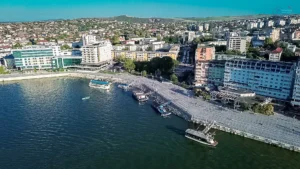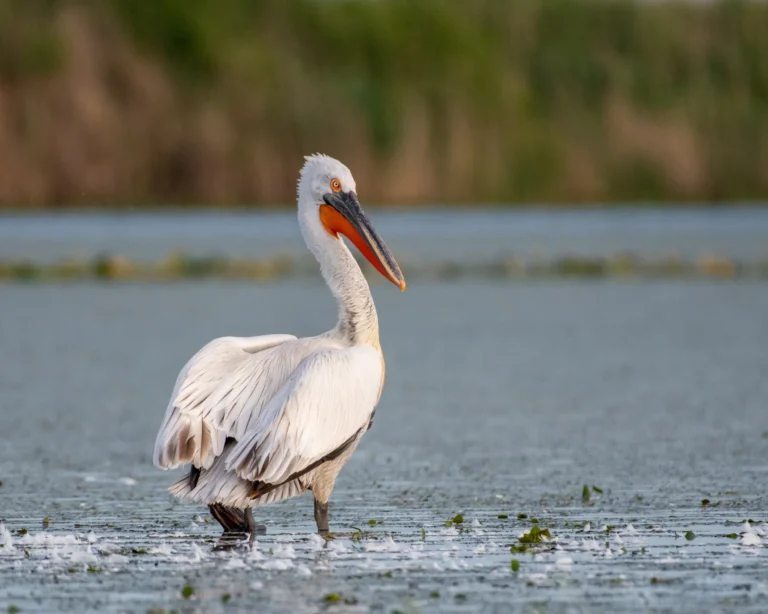
Dalmatian pelican

Description and how to observe Dalmatian pelican:
The crested pelican is one of the largest pelican species in the world, impressing with its wingspan of up to 3 metres and its silvery-white plumage, which takes on a slightly crested hue around the head. Visitors to the delta can see it most often on lakes, canals and near low-lying islands, where it feeds and rests. With binoculars, you can see its distinctive features, such as its long beak with yellow pouch and piercing eyes, which give it an intense look.
What it feeds on Dalmatian pelican:
Its diet consists mainly of fish, which it catches using impressive hunting strategies. Dalmatian pelican often fish in groups, forming lines or circles and using their large beaks to catch fish. As an opportunistic species, pelicans are quick to adapt to available fish resources, consuming a variety of freshwater species including perch, carp and carp.
Threats:
The Dalmatian pelican population is vulnerable due to environmental change and human impact. Key threats include destruction of natural habitat through water drainage, pollution and poaching, and disturbance from uncontrolled tourism activities. Climate change is also influencing water levels, reducing the optimal foraging and nesting range.
Ecological role:
More information about Pelecanus crispus:
In the Danube Delta, the Dalmatian Pelican is protected through various conservation initiatives and is listed on the Red List of Threatened Species. Romania is home to a significant part of the European population of the crested pelican, and collaboration between NGOs, local government and local communities plays a crucial role in protecting this emblematic species. Seeing the pelican in its natural habitat is an unforgettable experience and provides an insight into the beauty and fragility of the Danube Delta's biodiversity.
Discover now the most beautiful places in the Danube Delta!
In the following pages, you will find detailed information about:
- Top tourist destinations: Traditional villages, nature reserves, tourist trails and much more.
- Activities and attractions: Everything you need to know about boating, fishing, bird watching, cycling and other activities.
- Accommodation and catering: Accommodation to suit all budgets and restaurants serving traditional cuisine.




